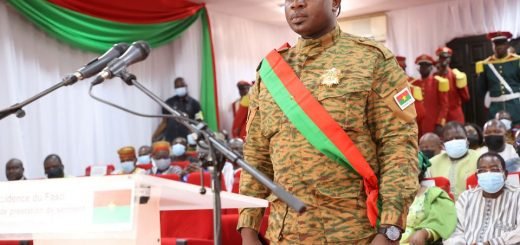Child Rights and Peacekeeping in Africa: The Security Council’s July Resolutions

Image: UNSC
July 2018 has been a momentous month for the United Nations Security Council, which can be evidenced by the passing of three pivotal resolutions on some pressing issues the international community has been facing for the past few years. Two of these resolutions involved reports of the Secretary-General on Sudan and South Sudan Crisis, with the third involving children and armed conflict. The latest two involving the Sudan and South Sudanese conflicts were published on the 13th of July.
The South Sudanese Conflict has been in pursuit since its initial mutiny in 2013 which has had a severe humanitarian and human rights toll on local civilian populations with reports of ethnic cleansing, sexual violence, attacks on civilians and UN workers. More than 3.5 million has been displaced and five million have been pushed into a chronic famine.
Read: Modi- First Indian Prime Minister to visit Rwanda
The first of the two resolutions gained a lot of attention as this U.S drafted document imposed an arms embargo on South Sudan. There was a great deal of objection regarding the resolution as members of the council felt it made ending the five-year conflict very difficult in what was the world’s youngest nation. However, it was narrowly approved after receiving the minimum of nine “yes votes”. In addition to the arms embargo, the resolution also imposes a travel ban and an asset freeze on South Sudan’s deputy defence chief for Logistics, Malek Reuben Riak Rengu and former chief of the Sudan People’s Liberation Army, Paul Malong Awan.
The United States had previously attempted to impose an arms embargo in 2016 but had not been successful in doing so in spite of the violence that had been going on since 2013. U.S Ambassador Nikki Haley even made comments regarding the flow of weapons that armed groups were gaining access to.
The second resolution was large regarding the situation in the Darfur province of Sudan. This region has witnessed armed conflict ten years before the South Sudanese conflict even started. Since 2003, the region has been witnessing an armed conflict between the Sudan Liberation Movement (SLM), the Justice and Equality Movement (JEM) and the Sudanese government. The government in retaliation to the insurgent attacks have been carrying out a campaign of ethnic cleansing against Darfur’s non-Arabs.
Read: Rwandan Genocide: A DarkSpot on our world history
The resolution was a unanimous effort of all 15 members of the council who came to an agreement upon the fact that in spite of the improvement of the security situation in Darfur, the conflict still poses a threat to international security. Hence the UN-AU Hybrid Operation in Darfur will continue to operate but its strength will be downsized from the current 8,735 to 4,050, while the police force will remain at the current 2,500 personnel.
In the resolution, the Council also recalled the recommendations in the Special UN-AU report adopted earlier this year, with plans towards the mission’s exit in 2020, provided there is no significant change in the security situation in Darfur.
The third resolution which was passed on the 9th of July involved the protection of children from becoming involved in armed conflict. It aimed to formulate a framework to ensure the protection, rights, and well-being of children in conflict-prone zones. It also condemned any attacks against schools and hospitals and further highlighted the existing international legal frameworks that outlawed these actions. There were also provisions to take measures against persons responsible for crimes against humanity, genocide, and crimes against children. The resolution also recalled the importance of providing post-conflict aid to children in terms of health-care, rebuilding infrastructure, food provisions and education. This resolution was adopted after a prolonged session of debate and deliberation on the issue and was chaired by the Swedish Prime Minister Stefan Lofven.
Hence, it is evident that the Security Council in its July efforts directed focus mostly upon the crises in the African continent, which has been highlighted by many as needing urgent attention, considering thousands of cases of grave human right violations had been reported in the past few months itself.
*Rayan Bhattacharya is a Research Intern at The Kootneeti


















